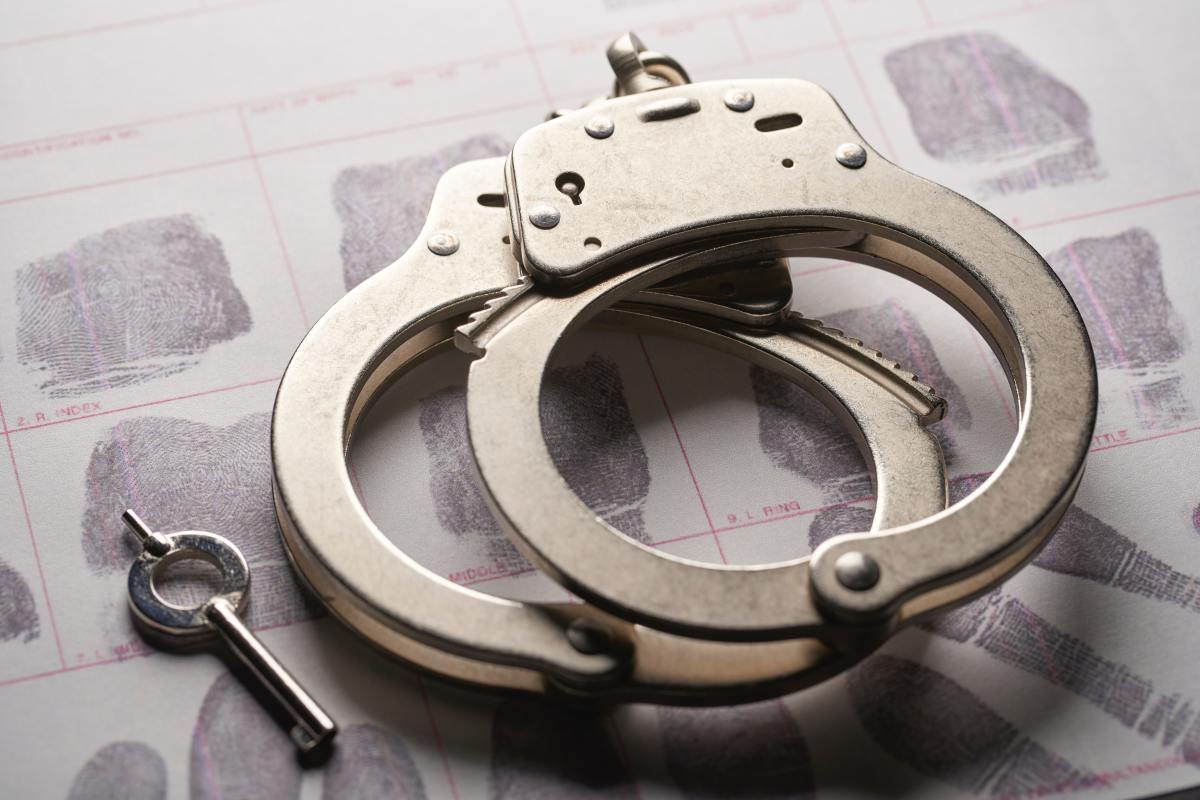
-By Darshil Sakhia and Pratham Shah
Introduction
In September 2020, a petition was filed in the Gujarat High Court (“Gujarat HC”) challenging the constitutionality of sections 2(1) (c), 16, 20(3), 20(4) and 20(5) of the Gujarat Control of Terrorism and Organized Crime Act, 2015 (“Act”). While the case is still being heard in the Gujarat HC, it is contended that these provisions violate Articles 20 and 21 of the Constitution of India, and “are drastic, arbitrary, unreasonable, susceptible to misuse and therefore, should be quashed and set aside“. This controversial legislation passed in March 2015, received the assent of President Ram Nath Kovind in November 2019, after being rejected thrice by his predecessors since 2004. This legislation draws its inspiration from the Maharashtra Control of Organized Crime Act (MCOCA) 1999, which brings a wide range of unlawful activities related to organized crimes under its ambit. It brings back the horror of stringent acts like The Terrorist and Disruptive Activities (Prevention) Act, 1987 (“TADA”) and The Prevention of Terrorism Act, 2002 (“POTA”), which were ultimately repealed by the central government for their arbitrary and despotic provisions.
This article aims to systematically analyse maincontested provisions of the Act and to demonstrate how these provisions are in contravention of the fundamental principles of criminal jurisprudence and constitutional values.
Arbitrary definitions
The threatening aspect of the legislation commences with Section 2 of the Act, wherein definitions of various offences are given. These given definitions are ambiguous and broaden the room for its potential misuse. A serious examination of the definitions of ‘unlawful activity’, ‘terrorism’, and ‘organised crimes’ under section 2(1)(c), section 2(1)(h), and under section 2(1)(e) respectively is essential. These definitions, constructed with vagueness and ambiguity, violate the very fundamental principles of criminal jurisprudence and the Constitution. Particularly, the definition of ‘unlawful activity’ read with the definition of ‘organized crimes’ stands out in this aspect. Apparently, the Gujarat HC also issued a notice to the state government seeking clarification on the definition of “continuing unlawful activity” under Section 2(1)(c). The complexity involved in the interpretation of this section itself exhibits the ambiguity and vagueness in the definition.
The unlawful activities are broadly classified under the definition of organized crimes under Section 2(1)(e). With the enhanced punishment for such unlawful activities, it runs contrary to Article 20(1) of the Indian Constitution. The article prohibits enhanced punishment for an accused held liable under an Act with retrospective effect. However, with a broad and ambiguous definition under the Act, it creates a fear among the minds of individuals of being wrongfully prosecuted for the acts committed before the legislation was passed.
Another troubling definition of this legislation is of ‘terrorism’, which states a ‘terrorist act’ as any act that has the intention of disturbing public order. The broad definition of this offence has wider implications for the citizens who protest against the government. This definition also runs parallel to the definition in the Unlawful Activities (Prevention) Act 1967 (“UAPA”), which has been the primary tool for the present central government to prosecute dissenters and protestors of its policies as observed in the case of activist Akhil Gogoi.
Admissibility of evidence collected through interception
Section 14 of the GCTOC Act deals with the admissibility of evidence collected through interception of wire, electronic, and oral communication with stringent measures. The evidence collected through interception can be validly used against the accused. The procedure for valid interception of the evidence and regulation of communication through different means are absent. There are no safeguards and regulations mentioned in the act for the protection against unlawful interception and for investigating agencies intercepting evidence. It also poses a risk of a surveillance state that indulges in intercepting the private communication of citizens. Illustratively, in State of Maharashtra v Bharat Shanti Lal Shah, the Supreme Court upheld the sections of the MCOCA 1999 which dealt with the evidence collected through interception of media. Due to technological advancement, these types of interceptions can even be collected discreetly from the individuals thereby violating the basic procedural requirements while collecting evidence and the fundamental right to privacy of an accused under Article 21 of the Constitution. It also poses a risk of a surveillance state that indulges in intercepting the private communication of citizens. This signifies how the maintenance of law and order is being compromised at the cost of privacy of the individuals.
Two additional conditions for bail
Section 20(4) of the Act contains two additional conditions that are to be complied with by the court to grant bail. First, the public prosecutor would be given an opportunity to oppose the bail application and second, in case of opposition by the public prosecutor, the special court should satisfy that there are reasonable grounds to believe that the accused is not guilty of such an offence and is not likely to commit any crime while on bail. This is particularly worrisome because through the strict reading of the provision, it is evident that it requires the court to comment on the culpability of crime while deciding on the bail application which might be used against the accused at the later stage of the trial. Moreover, Section 20(5)of the Act further solidifies these stringent conditions by imposing a blanket ban on bail if the accused is on bail for an offence under this Act or under any other law on the date of commission of an offence under the present Act. This makes it virtually impossible for an accused to get bail. Previous anti-terror laws like TADA and POTA also had additional two pre-conditions for which were upheld by the court even though the court recognized the harshness of bail provisions and their capability of being misused by the state authorities.
Another similar legislation enacted by the Maharashtra government, MCOCA also has the same conditions for granting bail, which was partially struck down by the Hon’ble Supreme Court (“SC”) in the case of State of Maharashtra vs Bharat Shanti Lal Shah & Ors. The SC upheld the order of Bombay HC to the extent that the words “or under any other Act” should be struck down from the Section 21(5) of MCOCA as being violative of 14 and 21 of the Constitution. Further, the Supreme Court in the case of Nikesh Tarachand Shah vs Union of India, had declared Section 45(1) of the Prevention of Money Laundering Act, 2002 that imposes two further conditions for release on bail (same as GCTOC and MCOCA), as unconstitutional on the ground that it violates Article 14 and 21 of the Constitution.
Thus, it can be observed that Section 20(5) and 20(4) of the GCTOC Act is in direct contravention of the Supreme Court’s judgement in the case of State of Maharashtra vs Bharat Shanti Lal Shah & Ors. and Nikesh Tarachand Shah vs Union of India respectively and is likely not to withstand the test of constitutionality in the Gujarat HC on being violative of Article 14 and 21.Also, it can be reasonably anticipated that police and government could unjustly invoke the provisions of this act with an ulterior motive to deprive the accused of getting bail, thereby circumventing the authority of law, which will be nothing but blatant abuse of law.
Confessions made before a police officer admissible in the court
Section 16 (1) of the Act makes confessions made before a police officer, not below the rank of superintendent of police, admissible in the court of law subject to provisions given under this section. Under this subsection, all types of confessions in writing, or on mechanical or on electronic devices are admissible against the accused as well as against co-accused, conspirator or abettor when such person is charge-sheeted and tried along with the accused. Furthermore, under Section 21 of the Act, if unlawful arms, materials, including documents and paper, are recovered from the possession of an accused or evidence of fingerprints is found, there will be a presumption of an offence unless proved otherwise. This provision along with section 16 undermines the two most fundamental principles of criminal law, namely, the requirement of mens rea (guilty mind) and the presumption of innocence.
TADA, MCOCA, and POTA also contained provisions that make confession before a police officer in custody admissible in the court. In the GCTOC Act as well in the MCOCA, there are provisions for the recording of confession in an atmosphere free from threat and inducement but the question is about its effective implementation on the ground. Importantly, in the case of Kartar Singh v. Union of India, the SC laid down six guidelines that need to be followed while recording confession before a police officer. But, the stark reality on the ground is, these guidelines are rarely followed, resulting in infringement of the right of the accused to get a free and fair trial guaranteed under Article 21 of the Constitution. In this judgement as well, the court acknowledged the prevalence of blood-curdling incidents of police brutality and atrocities which violate universal human rights and constitutional values. But despite this acknowledgement, the court has weighted the legislative intent and prevalent social conditions against the fundamental rights under Part III of the Constitution of India, and upheld the constitutionality of confession before police officer under TADA
Additionally, the Law Commission of India’s 185th Report and NCRB’s annual ‘Crime in India’ report from 2001 to 2016 compiled by the Times of India depict the unfortunate but real picture of our police. In Gujarat which is top on the list in terms of police brutality and custodial deaths, there is a high probability that this provision under GCTOC Act could be used to extract confession crime using threat and other atrocious methods like torture. Further, there are no provisions under this Act for punishing those police officers who would violate subsequent conditions under Section 16 by employing atrocious methods to extract a confession.
Conclusion
To conclude, this Act, introduced by the Gujarat Government is arbitrary and undermines the constitutional values. While having stringent anti-terror laws is necessary to protect state and national interests, provisions of the legislation must withstand the standards of the constitution with adequate safety mechanisms in place against its potential misuse which are absent in present law. There are also legitimate concerns regarding the subversion of ordinary criminal procedure through stringent provisions and wide powers given to state authorities under this Act. The introduction of legislation that transgresses fundamental rights and circumvents fundamental criminal procedure is not a sound solution for tackling the increasing threat from terrorism-related activities. We have time and again witnessed these types of laws and their variants- TADA, POTA, MCOCA and now the GCTOC Act that sabotage constitutional protections. It is now on the Gujarat HC to determine its constitutionality strictly in accordance with fundamental principles of criminal law and constitutional standards.
[The authors are second year law students at NALSAR, Hyderabad]

